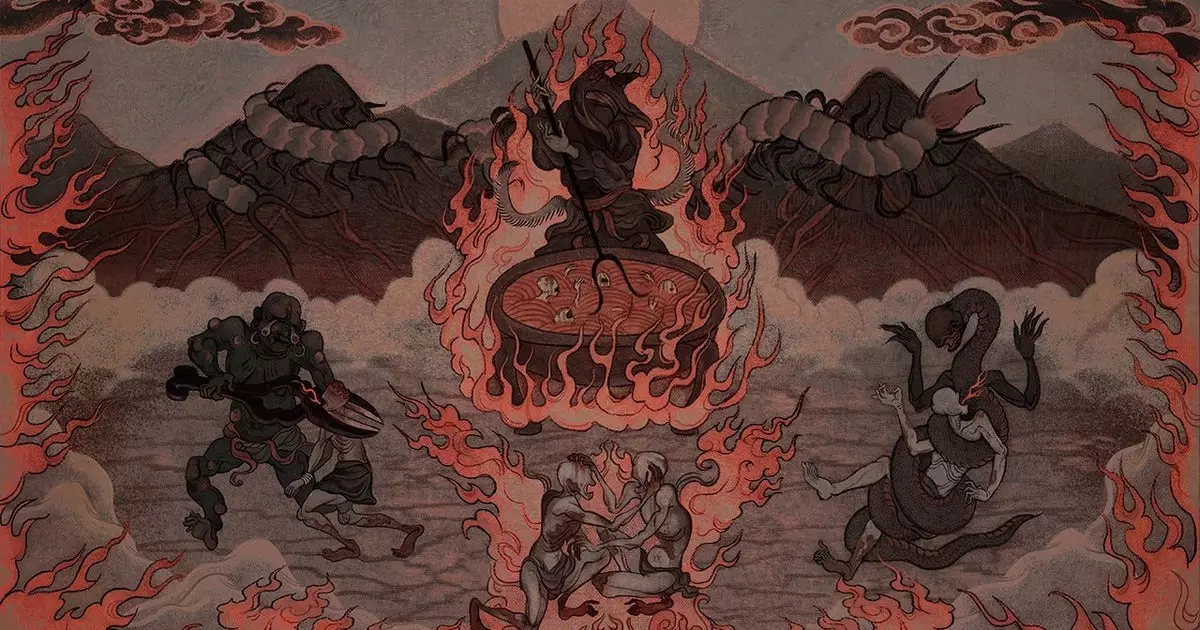In a gaming landscape often saturated with polished visuals and over-hyped mechanics, *Labyrinth Of The Demon King* emerges as a haunting reminder of the raw horror that once defined the genre. This recent release amalgamates the terror of classics like *Silent Hill* and *Amnesia: The Dark Descent*, delivering an experience that is a chaotic blend of powerhouse play styles and atmospheric dread. Set against the backdrop of a grim, mythological feudal Japan, the game wafts you into a murky realm of existential dread, rife with a plethora of nightmarish entities and arduous survival mechanics.
The essence of the game harkens back to an era where horror thrived on psychological tension rather than jump scares. You play as a character on a journey to confront a yokai boss who has ensnared your lord in a treacherous ambush. However, as soon as you step into this haunting world, it becomes evident that survival is not just about facing the looming threats, but grappling with the pervasive feeling of hopelessness that permeates the atmosphere.
Embodiment of the Malevolent
Upon entering the cursed domain, players encounter grotesque enemies known as “filthbastards.” These disturbing entities, reminiscent of something pulled from the darkest corners of Japanese folklore, not only serve as hostile figures but echo the disordered state of the world itself. The description of battling against these quivering, dismembered threats is visceral and unsettling, making you not just a player, but a reluctant participant in a living nightmare.
Your armaments are scant—limited to a bottle of sake, threadbare bandages, and a katana that seems more sapling than sword. The unease is amplified by equipment that reflects a struggle against the pervasive decay, embodying the desperation of your character’s plight. Sake might soothe the soul, but it certainly won’t save you in the heat of battle; the broken katana is just a sad reminder of what you need, but can barely wield. The items available are compellingly useless, aligning perfectly with the game’s theme of scarcity and dread.
Gameplay Mechanics: A Dance of Violence and Strategy
As combat unfolds, players find themselves engaged in a stamina-based system reminiscent of From Software’s earlier *King’s Field* games. The game’s unforgiving nature becomes quickly apparent, morphing every skirmish into a tactical dance of kicking and stomping—an improvised strategy to fend off monstrous threats that relentlessly pursue you. Kicking away assailants provides a momentary respite, yet it often leads to frustrations as enemies are pushed out of range, mocking your desperation for that elusive blacksmith to fix your weapon.
Meanwhile, the environment presents challenges of its own; flickering lights and claustrophobic spaces evoke a sense that escape is as improbable as survival. The convoluted layout is indicative of older horror titles, demanding that players navigate murky pathways while grappling with confusion—perfectly designed to evoke anxiety and fear.
A Grimy but Engaging Aesthetic
Graphically, *Labyrinth Of The Demon King* opts for a dirtied aesthetic that enhances its horror roots. The visuals are reminiscent of 90s horror games, employing dithering techniques that create an unsettlingly grainy environment. Each visual cue—be it the ominous camera angles or the atmospheric soundscapes—serves a deliberate purpose, drawing parallels to the atmospheric anxiety garnered in *Silent Hill*.
Movement in the game is sluggish and disjointed, contributing to feelings of entrapment, which are paramount in a horror experience. Every corridor elongates the tension, while the precarious rhythm of gameplay exacerbates the anxiety. Players find themselves torn between thrusting forward and retreating, navigating the line between bravery and folly.
In essence, *Labyrinth Of The Demon King* is not merely a game—it is an experience that continually wrestles with the themes of despair, survival, and hopelessness. As you manage to elude horrors around every corner, you are left not only to conquer foes but to confront your fears. In a market teeming with accessible narratives, this game stands defiantly chaotic, inviting brave souls to embrace the darkness and experience the truly horrid vibrancy of the unknown.

